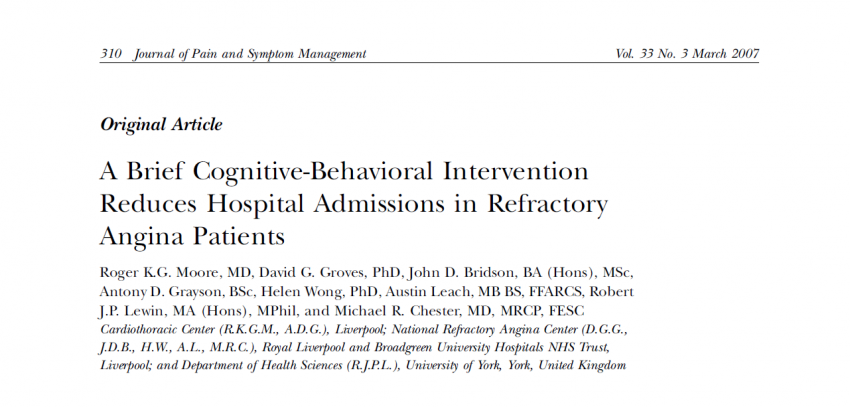This is a study that was published in 2007. [1]
271 patients with chronic refractory angina patients were enrolled in CB-CDMP. Total hospital admissions were reduced from 2.40 admissions per patient per year to 1.78 admissions per patient per year (P<0.001). The rising trend of total hospital bed day occupancy prior to enrollment fell from 15.48 days per patient per year to a stable 10.34 days per patient per year (P<0.001). There were 32 recorded myocardial infarctions prior to enrollment compared to eight in the year following enrollment (14% vs. 2.3%, P<0.001) and overall mortality was lower than in comparable groups treated with surgery.
The authors conclude that educating patients and demystifying angina using a brief outpatient CB-CDMP produces an immediate and sustained reduction in hospital admission costs that represents a major potential health care saving. These data suggest that a CB-CDMP approach to symptom palliation represents a low-cost alternative to palliative revascularization.
1 Moore RKG, Groves DG, Bridson JD, et al. A Brief Cognitive-Behavioral Intervention Reduces Hospital Admissions in Refractory Angina Patients. J Pain Symptom Manage 2007;33:310–6. doi:10.1016/j.jpainsymman.2006.10.009


